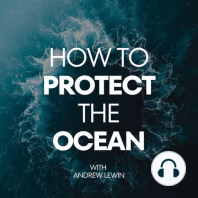16 min listen

SUFB 367: Hurricane Irma Sucks Water Away From Coast And Why Fish Eat Plastic
SUFB 367: Hurricane Irma Sucks Water Away From Coast And Why Fish Eat Plastic
ratings:
Length:
27 minutes
Released:
Sep 11, 2017
Format:
Podcast episode
Description
Hurricane Irma made landfall in Florida over the weekend reeking havoc in different counties across the state as it did across many Caribbean Islands. As people in the path of Irma checked in as safe on social media and shared pictures and videos of what they witnessed, an interesting thing popped up in some of the videos. Two people shared pictures and videos of the ocean water missing along their coasts. One person's video in Long Island, Bahamas showed water missing from his dock as far as the eye can see. The other video shows a manatee that was stranded due to the lack of water caused by the hurricane. Listen to the podcast to find out why this happened. Here are some links if you would like to help out: 1) Global Giving Fund 2) Turks & Caicos - This was set up by Dr. Edward Hind-Ozan. The second story I cover today is about a study showing why fish eat plastic that is plaguing our Ocean. I talk about the study and the results and how it affects humans as predators. Enjoy the Podcast!!! Let me know what you think of the episode by joining our Facebook Group for the Podcast. Support Speak Up For Blue's Efforts to create a free pr=resource program for Ocean Citizen Scientists to help move Marine Science and Conservation forward by collecting information for various Citizen Science program. Contribute to our Patreon Campaign
Released:
Sep 11, 2017
Format:
Podcast episode
Titles in the series (100)
SUFB 052: Toxic Algae Ravaging The Pacific Ocean: Warming oceans are bring more frequent toxic algae blooms to the Pacific delaying the Dungeness crab fishery indefinitely. I talk about other events that were related to toxic algae during the podcast. Shop for the... by How To Protect The Ocean